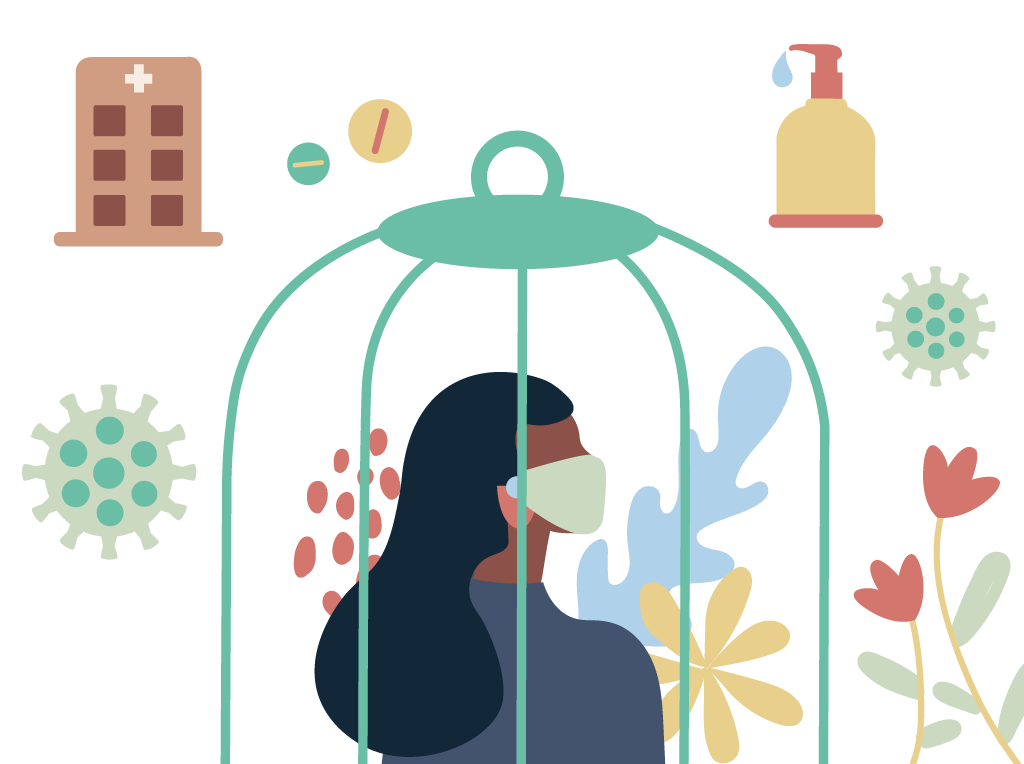This blog has been compiled by Debyani Bose.
India is slated to witness one of the greatest events in its history – the Covid-19 vaccination trial. The World Health Organisation (WHO) along with the partner organisations are working together to track the pandemic, advise on critical interventions and administer safe and effective vaccines.
This is indeed an exercise of a huge scale given the population of India which stands at an estimated 1,380,004,385 people according to UN data. India’s population corresponds to 17.7% of the total world population.
Goals of Covid-19 vaccine development are-
a. The vaccine needs to be safe enough to administer to the general population
b. The vaccine needs to be effective enough against the Pathogen e.g. a virus
As we near the date for the vaccination drive in India, we at Proactive, bring to you 10 important things that might be interesting to know about the Covid-19 vaccine.
Let’s understand how a vaccine works? But before that let’s first understand what happens inside the body when we contract a virus?
Typically, when we contract a virus, it takes over our body and cell machinery and multiplies itself. Eventually, in order to protect itself, the body triggers an immune response and starts creating special cells such as macrophages, B cells, and T cells that not only destroy the pathogen but also store information about it. So, if the virus attacks anyone with a compromised immune system it can gain an upper hand leading to illness. This is where the vaccines come in. It can prepare and train the immune system before you get an infection.
1. How do vaccines work?
The history of mankind is replete with examples of successful development of vaccines for a number of life-threatening ailments including meningitis, tetanus, measles, and wild poliovirus. Most vaccines work by injecting some aspects of the virus or bacteria into the bloodstream.
Vaccines are extremely powerful tools that help provide immunity to an individual and protect larger communities.
The Covid-19 vaccines fall under the category of mRNA vaccines which is a new type of vaccine that provides protection against infectious diseases. The COVID-19 mRNA vaccines give instructions to our cells to create a harmless piece of what we call the ‘spike protein.’ We find the spike protein on the surface of the virus that causes COVID-19. Once inside our body, the mRNA teaches our defense cells to create immunity against the disease by building these spike proteins. Being extremely unstable, this mRNA gets degraded by our body very fast.
2. What is there in a vaccine?
The different ingredients in a vaccine play a vital role in ensuring it’s safe and effective. The ingredients are as follows-
The antigen: Antigen in a weakened form of a virus that trains our bodies to recognize and fight the disease.
Adjuvants: Adjuvants helps to strengthen our immune response and help the vaccines work better.
Preservatives: Preservatives help to ensure that a vaccine is effective.
Stabilisers: Stabilizers protect the vaccine during the storage process.
The ingredients in a vaccine may look unfamiliar when they’re there on a label.
Many of the components used in vaccines are naturally produced by the body and are in the foods we eat. The ingredients in vaccines and the vaccines themselves are thoroughly tested and monitored to ensure they are safe.
3. When will the Covid-19 vaccine be available?
The availability of the vaccine will depend on two conditions.
- Approval time for a new vaccine as the regulatory authority of India
- Wide-Scale commercial availability and that depends on the manufacturing capacity and distribution ability in a country.
4. Who can get vaccinated?
Anyone can get vaccinated. However, those with the following conditions should not get certain vaccines or wait before getting them. These conditions include:
- Chronic illnesses or treatments such as chemotherapy that affect the immune system
- Severe illness or high fever on the day of vaccination
5. How quickly can COVID-19 vaccines stop the pandemic?
Several factors will determine the impact of Covid-19 vaccines on the ongoing pandemic. The most important factors are:
- Effectiveness of the vaccines
- How quickly they are approved, manufactured, and delivered
- How many people are getting the vaccination
6.What are the side effects of a COVID-19 vaccine?
- Nausea and vomiting
- Fever and Chills
- Muscle pain and soreness
- Joint pain
- Pain and swelling when the shots are given
7. Should I get the COVID-19 vaccine even if I've already had COVID-19?
Contracting Covid-19 might help you develop your immunity from re-infection. However, re-infection is again possible. Therefore, it is recommended to take a Covid-19 vaccination even after one has contracted the virus.
According to scientists, COVID-19 vaccines will not be 100 percent effective. WHO officials are working to ensure that the approved vaccines are as effective as possible.
8. Who will get preference in vaccination?
Even though Covid-19 vaccines are on the horizon, the supply of the vaccines may be limited in the first few months. Frontline health workers, essential workers, and those in the high-risk group (i.e. those above 60 years old and those with co-existing health conditions), and people who live in crowded settings and the high-risk environment will get vaccinated first.
9. How will the vaccine be administered?
As per media reports, a digital platform Co-WIN will be used for COVID-19 vaccination delivery, and approximately 1.54 lakh Auxiliary Nurse Midwives working on Universal Immunisation Programmes will be roped in as vaccinators. Cold chain systems are to be supported across the country to deliver multiple doses.
10. Will COVID-19 vaccines provide long-term protection?
It’s too early to predict if COVID-19 vaccines will provide long-term protection. Data suggest that most people who recover from COVID-19 develop an immune response that provides at least some period of protection against reinfection – although we’re still learning how strong this protection is, and how long it lasts.
Most COVID-19 vaccines being tested or reviewed now are using two dose regimens. As per initial official reports, Covid-19 vaccination drive will be tracked digitally to avoid duplication and to remind people of getting a second shot. The Government has not yet declared any of its plans on whether the Covid-19 immunization will be made compulsory or not.
According to official figures, 30 crore Indians are expected to be immunized in the first half of 2021. According to media reports, altogether six vaccines are undergoing clinical trials in India at present.
To know more on the sexual and reproductive health of women, visit https://www.proactiveforher.com/
Disclaimer: This article is for informational purposes only and should not be construed as a substitute for medical advice or treatment
Sources :
https://www.cdc.gov/coronavirus/2019-ncov/vaccines/index.html
https://www.who.int/emergencies/diseases/novel-coronavirus-2019/covid-19-vaccines
https://www.who.int/emergencies/diseases/novel-coronavirus-2019/covid-19-vaccines
https://newsnetwork.mayoclinic.org/discussion/working-toward-a-covid-19-vaccine/
https://www.who.int/emergencies/diseases/novel-coronavirus-2019/covid-19-vaccines
https://voxeu.org/article/public-preferences-prioritising-covid-19-vaccine
Disclaimer : This information is provided for educational purposes and should not be construed as medical advice. Please consult with your healthcare practitioners before undertaking any changes in your diet or adding supplements.
ProactiveForHer is a digital clinic for women, offering accessible, personalized, and confidential health-care solutions. We offer products and services for out-patient health concerns of Indian women, across their lifetime - from puberty to pregnancy to menopause. To know more on the sexual and reproductive health of women, visit https://www.proactiveforher.com/

